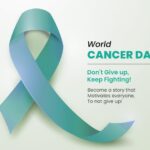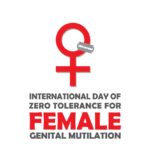🌍 7 Alarming Truths Behind Female Genital Mutilation – Why Zero Tolerance Matters Today
📌 Introduction
Every human has the right to live with dignity, health, and freedom. But for millions of girls and women worldwide, that right is stolen through a harmful and traumatic practice — Female Genital Mutilation (FGM). Recognizing the urgency to eradicate this practice, 6 February is marked globally as the International Day of Zero Tolerance for Female Genital Mutilation.
- 📌 Introduction
- 📖 History of International Day of Zero Tolerance for FGM
- 📅 Timeline of Events
- 🔍 7 Shocking Facts About Female Genital Mutilation
- ❓ FAQs about FGM and Zero Tolerance Day
- 🎯 Significance of the Day
- 💬 Wishing Messages to Spread Awareness
- 🧭 Why It’s Important in Our Lives
- 💎 Important Points to Remember
- 🧠 Observance Activities (What You Can Do)
- 🌱 Conclusion: Daily Life Impact and Our Role
This day serves as a call to action — to educate, raise awareness, and ensure that every girl has the right to her body and her future.
📖 History of International Day of Zero Tolerance for FGM
The United Nations officially designated February 6 as the International Day of Zero Tolerance for Female Genital Mutilation in 2003, following a push by Stella Obasanjo, the then First Lady of Nigeria and spokesperson for the Campaign against FGM.
FGM had been practiced for centuries in parts of Africa, the Middle East, and Asia, often rooted in myths, control over women’s sexuality, and social conformity. But growing movements in the 20th century began to highlight the human rights abuses involved.
The day now symbolizes a global effort to end this practice by 2030, aligning with the United Nations Sustainable Development Goals (SDGs).
📅 Timeline of Events
| Year | Event |
|---|---|
| Pre-1900s | FGM practiced in various cultures, often unchallenged. |
| 1970s | Women’s rights groups begin challenging FGM in global forums. |
| 1997 | WHO, UNICEF, and UNFPA release joint statement against FGM. |
| 2003 | UN declares February 6 as the International Day of Zero Tolerance for FGM. |
| 2012 | UN General Assembly adopts resolution to ban FGM globally. |
| 2015 | FGM included in the UN’s SDG Goal 5: Gender Equality. |
| 2020 | Global pandemic risks reversing progress on FGM. |
| 2024 | Over 31 countries criminalize FGM officially. |
🔍 7 Shocking Facts About Female Genital Mutilation
Over 200 million women and girls alive today have undergone FGM globally.
FGM is most common in Africa, the Middle East, and parts of Asia, but it also occurs in immigrant communities in Europe, North America, and Australia.
The procedure has no health benefits and causes lifelong trauma, both physical and emotional.
Girls are usually cut between infancy and age 15 — often without anesthesia.
FGM can cause hemorrhage, infection, infertility, and even death.
It is deeply tied to gender inequality, control over female sexuality, and misinformation.
Some communities believe FGM is a religious requirement, though no major religion mandates it.
❓ FAQs about FGM and Zero Tolerance Day
Q1. What is Female Genital Mutilation (FGM)?
FGM involves partial or total removal of the external female genitalia for non-medical reasons, often causing severe health risks.
Q2. Is FGM legal?
In many countries, FGM is illegal, but enforcement varies. Some communities continue it secretly due to cultural or societal pressure.
Q3. Why is Zero Tolerance Day observed on February 6?
It was initiated by the UN in 2003, to push for global awareness and to encourage laws, policies, and cultural change against FGM.
Q4. What is the goal of this day?
To eliminate FGM globally by 2030, as a part of Sustainable Development Goal 5: Gender Equality.
Q5. What can I do to help?
You can:
Raise awareness
Educate others
Support NGOs
Encourage survivor voices
Advocate for strong legal frameworks
🎯 Significance of the Day
The International Day of Zero Tolerance for FGM goes beyond awareness — it’s a humanitarian movement. Here’s why it matters:
🧠 Breaks silence around a taboo subject.
💪 Empowers survivors to speak out.
⚖️ Promotes human rights and legal reforms.
🎓 Educates communities about the dangers of FGM.
👧 Protects future generations from abuse.
🤝 Unites global efforts for gender equality.
💬 Wishing Messages to Spread Awareness
Sharing these messages on February 6 can inspire others:
🔹 “On this Zero Tolerance Day, let’s stand together to protect every girl’s right to health, dignity, and freedom.”
🔹 “Say NO to FGM. Say YES to education, empowerment, and equality.”
🔹 “Break the silence, end the violence. Together we can eliminate FGM by 2030.”
🔹 “Her body. Her choice. Always.”
🧭 Why It’s Important in Our Lives
Even if FGM is not practiced in your community, standing against it promotes universal human values. Here’s how it connects with daily life:
Encourages a culture of empathy and respect for women’s rights.
Inspires health professionals, teachers, and lawmakers to be proactive.
Teaches children the importance of bodily autonomy.
Strengthens the global movement for gender equality.
Helps survivors find support, solidarity, and healing.
💎 Important Points to Remember
FGM is a violation of human rights.
It’s illegal in many countries, but enforcement is still a challenge.
Cultural sensitivity must be balanced with zero tolerance.
Education and dialogue are the strongest tools for change.
Ending FGM requires global cooperation, grassroots movements, and community engagement.
🧠 Observance Activities (What You Can Do)
Host awareness campaigns in schools, colleges, or local communities.
Share survivor stories on social media to humanize the issue.
Donate or volunteer with organizations like:
Equality Now
Orchid Project
Tostan
UNFPA
Create safe spaces for discussion in community centers or churches.
Lobby for stronger anti-FGM laws in your region.
🌱 Conclusion: Daily Life Impact and Our Role
The International Day of Zero Tolerance for FGM is not just a date — it’s a call to protect humanity. FGM may seem distant for many, but the pain, silence, and consequences are real and current for millions of girls worldwide.
You don’t need to be a policymaker to make a difference. As a friend, parent, teacher, or citizen — your voice, compassion, and awareness can change a life, even save one.
Let February 6 remind us that freedom from harm is a birthright, not a privilege. Together, through zero tolerance, we can build a world where every girl is free to grow, dream, and live fully.








